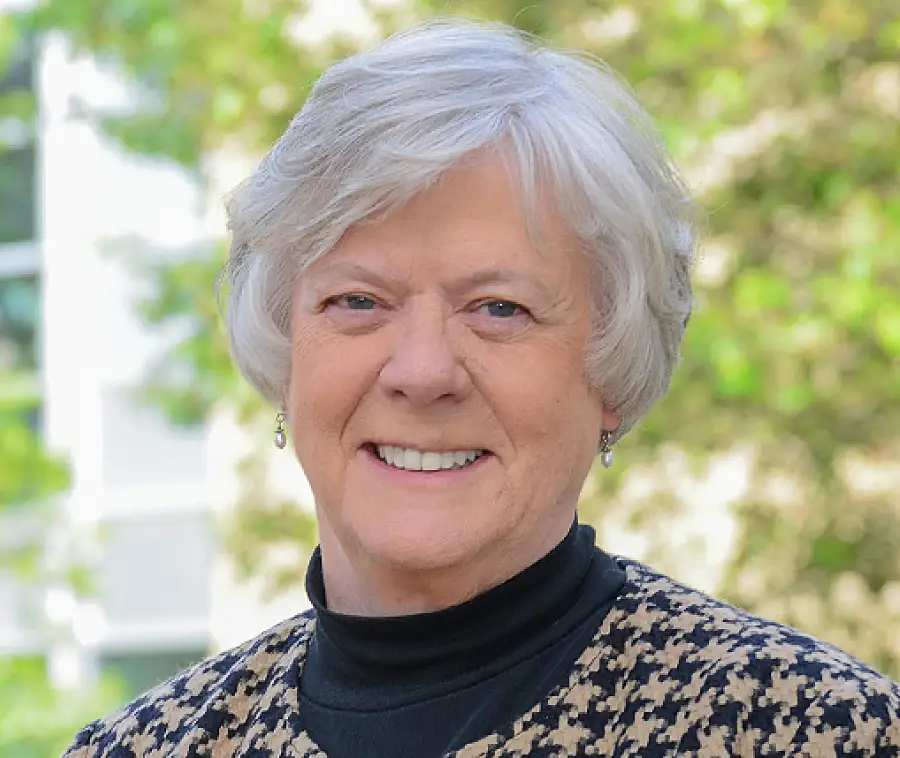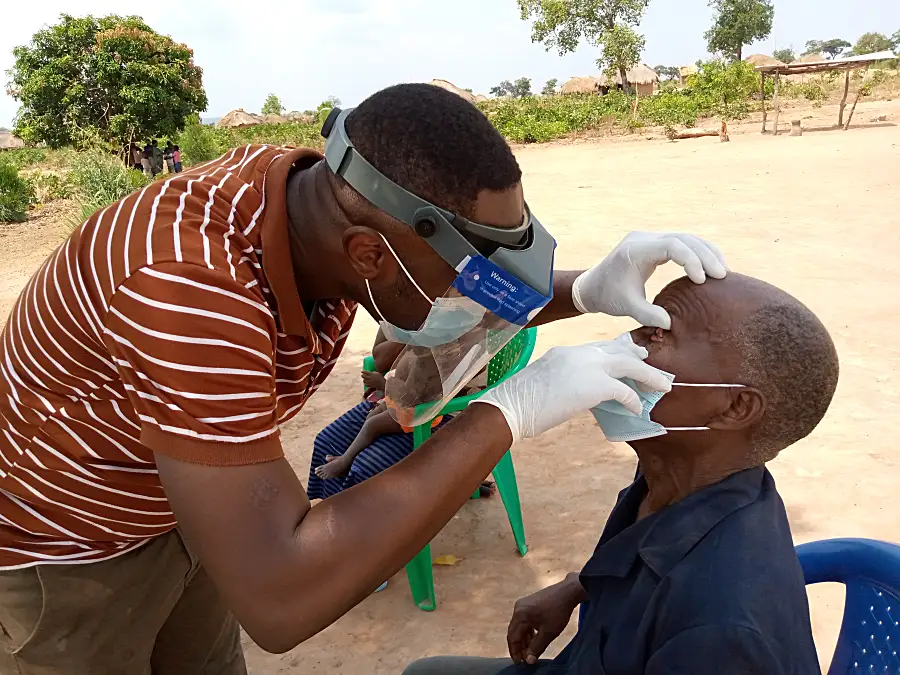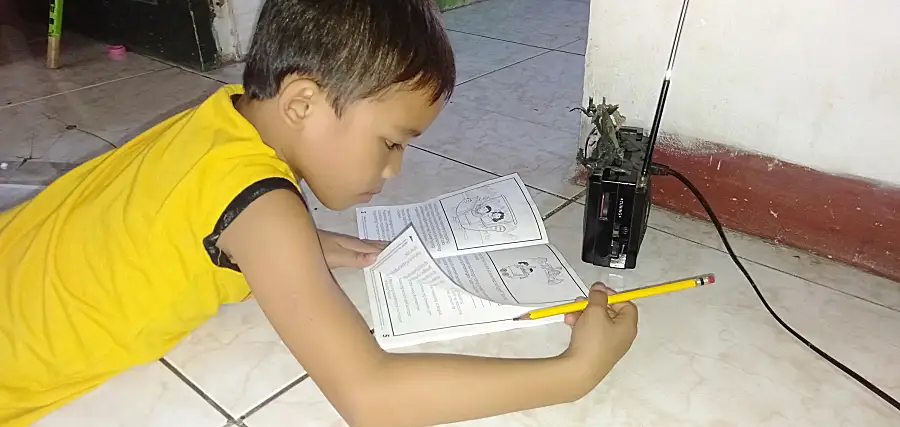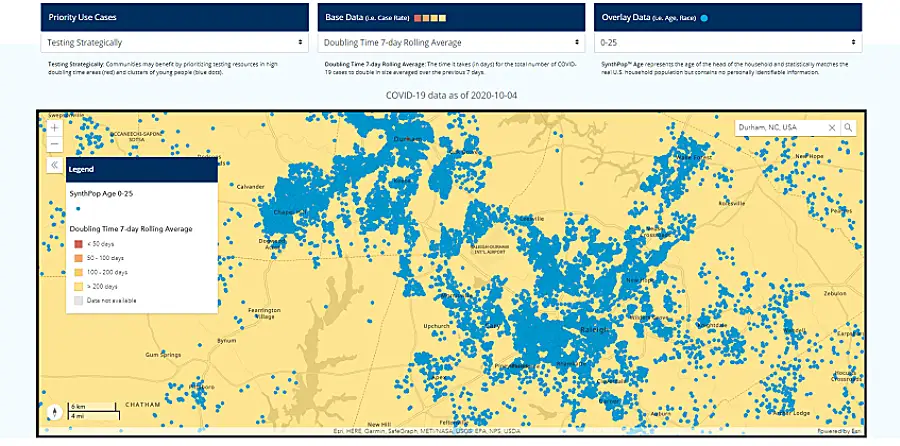
It was one year ago today that the World Health Organization declared COVID-19 a global pandemic. The announcement from Director-General Tedros Adhanom carried a clear sense that no aspect of life as we know it would remain unaffected.
“This is not just a public health crisis; it is a crisis that will touch every sector—so every sector and every individual must be involved in the fight,” Adhanom said.
At RTI International, we had been monitoring the situation since the first reports that a “novel coronavirus” had been infecting residents of Wuhan, China, in late December 2019. With a deep concern for global public health, and a workforce of more than 5,000 to look out for, we knew this was no ordinary outbreak.
The same week as the WHO announcement, we sent the majority of our worldwide staff members home for an unknown period of remote working. While our headquarters in Research Triangle Park, North Carolina, and our offices around the world emptied, our work never stopped.
As an institute committed to improving the human condition, we are ideally suited to not only be involved in the fight against COVID-19, but to lead it. Our experts in epidemiology, public health, international development, engineering, economics, survey research, data analysis, communication, and many other fields met the moment and will continue to contribute to the solutions the world needs as it emerges from the crisis.
The response to the COVID-19 pandemic is the story of our year. It is the fight of our lives. As we reflect on a year of battling COVID-19, the work goes on, and we will never be the same.
The following are some of RTI’s key achievements from a year unlike any other.
March 2020
Now working from home, away from their usual desks and teams, RTI’s survey professionals quickly assessed the new reality. How would they keep collecting data from thousands of sources despite the upheaval? For the people involved in the EIA Gas Price Survey, advanced preparation for disasters and disruptions ensured that they could maintain their intense weekly schedule. The teams working on our postsecondary education surveys juggled the sudden office closure, shifting federal deadlines, and general disruption among the students and educational institutions they support.

April 2020
April was a foreboding month in the United States. The virus was just beginning to take hold, and the country experienced its first COVID-19 surge. But the path toward positive change was emerging on the horizon.
Mid-month, the federal pandemic response gained the expertise of one of RTI’s leading scientists. Dr. Doris Rouse, known for her decades-long pursuit of a new treatment for extensively drug-resistant tuberculosis, was chosen to serve alongside the nation’s top experts on a National Institutes of Health (NIH) panel addressing the current crisis and preparing for future pandemics.
The pandemic also took hold in low- and middle-income countries around the world. RTI’s international development team sprang into action to help countries and communities respond to the crisis and build resilience. One example is the USAID ReachHealth project in the Philippines, which shifted its activities to operationalize nationwide COVID-19 policies, help facilities access COVID-19 financing, empower health workers on infection prevention and control, improve contact tracing, and support risk communication and community engagement.
Additionally, many countries around the world made the difficult decision to close schools and shift to distance learning. The USAID-funded All Children Reading–Cambodia project helped students practice reading and writing skills every day at home using online tools that parents are familiar with, like Facebook and YouTube.
Amid the fear and uncertainty of spring 2020, COVID-19 was not the only thing going viral. Our communication science specialists monitored discussions of the pandemic on social media, including efforts by social media platforms to direct users away from misinformation and toward credible sources.
May 2020
The lengthening lockdown across much of the United States led to new questions. Two RTI researchers realized that a preventive health modeling tool they created could offer insights into the ripple effects of COVID-19 on society. Specifically, the web-based PRISM tool showed that if the pandemic interrupted preventive care for people with chronic conditions, deaths from these conditions would increase over time.
COVID-19 is a health issue, but the response needs to be multi-sectoral. In Senegal, the RTI-implemented USAID/Governance for Local Development (GoLD) Activity brought together 17 multi-sectoral projects to share ideas and resources so that projects could deliver results despite the operational challenges posed by the pandemic.
Another way we helped in the global response was increasing energy access for healthcare in sub-Saharan Africa. The USAID-funded Power Africa Off-Grid Project is providing grants to electrify healthcare facilities and supporting off-grid energy companies to adjust their business practices to operate under new guidelines and principles in light of the pandemic.
June 2020
Just as COVID-19 cases appeared to be stabilizing, the United States faced another national crisis: racial injustice. A wave of protests in response to several high-profile deaths of Black individuals at the hands of law enforcement called attention to systemic racial disparities.
Racial inequity was already a concern for our experts studying social determinants of health. Our understanding of how COVID-19 affects Black Americans differently than whites is part of a broader picture of how health disparities will need to be addressed beyond the pandemic.
The pandemic’s economic toll continued to spread amid the uncertainty of summer, as various states considered whether to reopen businesses. To provide essential information for COVID-19 response and relief at the national, state, and local levels, we launched an interactive map that measures economic vulnerability by location and occupation.
Also in June, our subsidiary, RTI India, formed a COVID-19 research partnership with the India Alliance, providing another example of our contributions to building pandemic resilience through robust scientific research, thought leadership, and interdisciplinary collaboration.
July 2020
Our research focus on telehealth proved prescient as phone- and video-based medical appointments emerged as a safe, mainstream option for health care. In a report to the U.S. Congress, a group of RTI researchers highlighted the positives of telehealth, especially for younger patients who need behavioral health and substance abuse treatment. Through blog posts and webinars, our experts offered advice for practitioners and informed opinions on updated guidelines for covering the costs of telehealth services. Through a study of telehealth for addiction treatment, we combined our years of research on the opioid epidemic with our emerging emphasis on COVID-19.
Food assistance provided a lifeline during the early months of the pandemic, especially for the millions of children who depend on school meals. Our researchers in the areas of food insecurity and nutrition policy monitored the sudden shift to Pandemic-Electronic Benefit Transfer, or Pandemic-EBT—the new, highly flexible food assistance program that Congress launched to put food in the hands of hungry families.
August 2020
A late-summer surge in COVID-19 cases, surpassing the levels seen in spring, coincided with the announcement of RTI’s involvement in large-scale efforts to combat the pandemic and other public health threats. We were chosen by the National Institute of Allergy and Infectious Diseases, part of the NIH, to play a vital coordinating role in the newly established Centers for Research in Emerging Infectious Diseases network. In partnership with the Duke Human Vaccine Institute, RTI serves as the network’s operational hub, accelerating research targeting new outbreaks.
The National Heart, Lung, and Blood Institute, another part of the NIH, also selected RTI to serve as the Administrative Coordinating Center for the Collaborating Network of Networks for Evaluating COVID-19 and Therapeutic Strategies, or CONNECTS. This initiative focuses on clinical trials to identify therapies that will slow or halt the progression of COVID-19.
September 2020
Our longstanding expertise in health information systems led to a new role in a global project. USAID selected RTI as a partner for the Country Health Information Systems and Data Use (CHISU) Program, led by JSI Research & Training Institute. The project works alongside governments in low- and middle- income countries to strengthen health systems and data for decision-making, which is critical to building resilience against pandemics.
While preparing for better responses to the overall crisis, we also took steps to improve some of the short-term steps people were taking to manage the pandemic’s impact on everyday life. A study of COVID-19 screening measures such as temperature checks and health questions found that they could potentially miss anywhere from 20% to 100% of people infected with COVID-19. The results underscored the need for masks and physical distancing.
Masks themselves, in short supply earlier in the pandemic, got a boost from our Innovation Advisors and experts in filtration testing. These two RTI teams, one focused on technology commercialization and one on air quality and materials science, each found ways to work with existing and new clients to make personal protective equipment more available and effective.
October 2020
Reliable, daily data are crucial to the COVID-19 response. We created an interactive tool that fills this need. The COVID-19 Data Insights Tool helps leaders prioritize important response efforts like contact tracing, placement of testing sites, and vaccine distribution. This sophisticated tool, which integrates the hyperlocal capabilities of our SynthPop technology, can also help assess when parts of the United States may have reached herd immunity.
We also conducted internally funded research and development initiatives to better understand the impact of the ongoing pandemic in low- and middle-income countries, including on food security in Ghana and agriculture in Senegal.
Important work to control and eliminate malaria around the world did not stop during the pandemic. The USAID StopPalu+ project in Guinea, led by RTI, successfully adapted its activities to safely deliver preventive medicines to more than 300,000 children under age five during a country-wide distribution campaign from July to October.
We continued to form partnerships with other leading research institutions to add scientific rigor to the multifaceted battle against COVID-19. R3: The Rush-RTI Research Initiative to Address COVID-19 committed to fostering new and exciting collaborations that can attract future funding opportunities from extramural federal and non-federal sources.

November 2020
Long before COVID-19 made its appearance, RTI was a leader in controlling and eliminating neglected tropical diseases (NTDs). The pandemic created obstacles for NTD programs, which depend on reaching whole communities, and one-on-one efforts to identify and treat individuals, often in some of the hardest-to-reach areas. But it also offered lessons in how to maintain focus on battling these disabling diseases despite hardships. USAID’s Act to End NTDs | East program, led by RTI, weighed the risks, devised creative solutions, and pressed forward with its important mission.
The COVID-19 pandemic brought a new application for our recent research on wearable devices that measure health data. In collaboration with the Defense Advanced Research Projects Agency and Garmin, a manufacturer of wearables, we launched an effort to track the health of Navy sailors living on a ship.
We also built on our involvement with CONNECTS when we announced that we would serve as the Administrative Coordinating Center for a new nationwide study of COVID-19 risk and possible long-term effects of the disease. The study, called the Collaborative Cohort of Cohorts for COVID-19 Research (C4R) Study, is being led by Columbia University and involves 37 academic medical centers.
December 2020
Pandemic-weary Americans faced a winter holiday season in which simply traveling to see family could be perilous. Our experts, highly sought by journalists since the first reporting on the “novel coronavirus” nearly a year earlier, provided valuable information to news outlets covering travel hazards and other relevant topics.
As the world tilted toward yet another surge in COVID-19 cases, it also gained important new weapons in the battle to stop the spread. The Pfizer and Moderna vaccines gained regulatory approval, and in the United States, distribution efforts began. The number of frontline health workers who received the first vaccines toward the end of December was small, but it meant we had entered a new phase. A Q&A with infectious disease expert Dr. Pia MacDonald helped take stock of the vaccine’s limitations as well as its potential.
January 2021
In our headquarters state of North Carolina, we announced a new registry of COVID-19 cases, quarantines, and vaccinations among a highly exposed population: first responders. This is the first real-time registry in the nation to track COVID-19 among firefighters, emergency service workers, and others who have been among the critical contacts of the most severely ill COVID-19 patients.

February 2021
For nearly a year, schools around the world had operated with a patchwork of systems to protect teachers, students, and families from COVID-19. Online learning and hybrid schedules became mainstream. The inconsistency took a toll on both learning and mental well-being.
With years of experience in domestic and international education, RTI stepped up to support teachers and education leaders in their effort to keep providing quality learning experiences despite the disruption. A series of Insights blog posts by members of the RTI Center for Education Services, running throughout the pandemic year, shows how we offered coaching to teachers dealing with stress and trauma. From a research perspective, we offered pointers on social-emotional learning among low-income students. Experts from our International Education team also examined the educational impact of COVID-19, such as learning loss, on students in low- and middle-income countries.
The Zoom or Google classroom is an enduring image of the pandemic, but many students face barriers to connecting. In the Philippines, we helped more than 5,000 teachers launch the school year using online lessons along with distance-learning tools that don’t depend on high-speed internet, such as print packages and TV and radio broadcasts. The teacher training itself went online and proved successful in helping teachers acquire technology skills and tips for supporting learning continuity during the pandemic.
March 2021
With cases in the United States trending downward amid an accelerating vaccine rollout and a renewed emphasis on behavioral safety protocols, our researchers weighed in on a new set of policy issues, including strategies to address vaccine hesitancy and considerations around the reopening of elementary schools.
While more work is yet to come, a year after WHO’s official pandemic declaration, our researchers, scientists, and project teams continue their pursuit to bolster the world’s understanding of and response to COVID-19. RTI’s mission to improve the human condition remains at the core of that pursuit.

